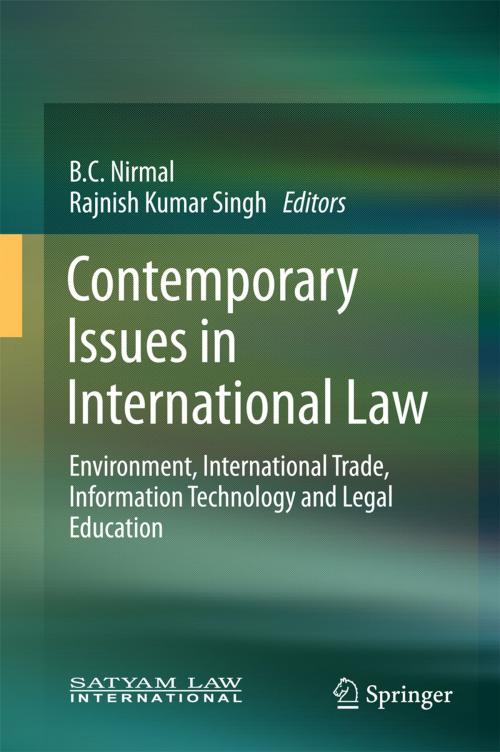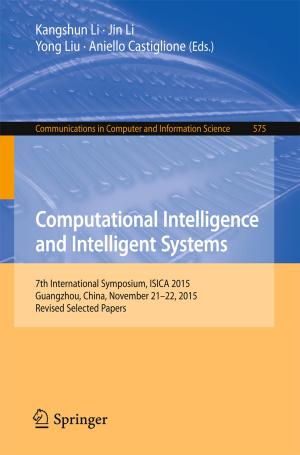Contemporary Issues in International Law
Environment, International Trade, Information Technology and Legal Education
Nonfiction, Reference & Language, Law, Media & the Law, International| Author: | ISBN: | 9789811062773 | |
| Publisher: | Springer Singapore | Publication: | February 13, 2018 |
| Imprint: | Springer | Language: | English |
| Author: | |
| ISBN: | 9789811062773 |
| Publisher: | Springer Singapore |
| Publication: | February 13, 2018 |
| Imprint: | Springer |
| Language: | English |
This book explores the changing nature of international law and its ability to respond to the contemporary issues related to international environment, trade and information technology. The evolution of international law has reached a stage where we are witnessing diminishing power of the state and its capacity to deal with the economic matters challenging the existing notions of territory and sovereignty. Recent trends in international law and international relations show that states no longer have exclusive control over the decision-making process at the global level. Keeping this in mind, the book brings together the perspectives of various international and national scholars.
The book considers diverse issues such as, sustainable development, climate change, global warming, Rio+20, technology transfer, agro-biodiversity and genetic resource, authority for protection of environment, human right to water, globalization, human rights, sui generis options in IP laws, impact of liberalization on higher education, regulation of international trade, intellectual property rights, collective administration of copyright, broadcast reproduction rights, implementation of copyright law, communication rights under copyright law, arbitration for IP disputes, doctrine of exhaustion of rights, trans-border reputation of trademark, information as an asset, cyber obscenity and pornography, e-governance, taxation of e-commerce, computer crime, information technology, domain names, research excellence in legal education, ideological perspective on legal education, challenges for law teachers, and clinical legal education. The topics, though diverse, are closely interrelated, with the common concern throughout being that the global environment, international trade, information technology and legal education need appropriate national normative and institutional responses as well as the global cooperation of members of the international community. Presenting reflections of a number of Asian, African and European scholars on these varied facets, the book is of great value to scholars, practitioners, teachers and students associated with contemporary international law.
This book explores the changing nature of international law and its ability to respond to the contemporary issues related to international environment, trade and information technology. The evolution of international law has reached a stage where we are witnessing diminishing power of the state and its capacity to deal with the economic matters challenging the existing notions of territory and sovereignty. Recent trends in international law and international relations show that states no longer have exclusive control over the decision-making process at the global level. Keeping this in mind, the book brings together the perspectives of various international and national scholars.
The book considers diverse issues such as, sustainable development, climate change, global warming, Rio+20, technology transfer, agro-biodiversity and genetic resource, authority for protection of environment, human right to water, globalization, human rights, sui generis options in IP laws, impact of liberalization on higher education, regulation of international trade, intellectual property rights, collective administration of copyright, broadcast reproduction rights, implementation of copyright law, communication rights under copyright law, arbitration for IP disputes, doctrine of exhaustion of rights, trans-border reputation of trademark, information as an asset, cyber obscenity and pornography, e-governance, taxation of e-commerce, computer crime, information technology, domain names, research excellence in legal education, ideological perspective on legal education, challenges for law teachers, and clinical legal education. The topics, though diverse, are closely interrelated, with the common concern throughout being that the global environment, international trade, information technology and legal education need appropriate national normative and institutional responses as well as the global cooperation of members of the international community. Presenting reflections of a number of Asian, African and European scholars on these varied facets, the book is of great value to scholars, practitioners, teachers and students associated with contemporary international law.















